The UK government has widened out its ‘trophy hunting’ consultation to include UK deer. It looks like Boris Johnson now plans to stop overseas stalkers from coming to the UK, as well as Britons going overseas to hunt.
A spokesman for UK environment department DEFRA confirms that the new consultation will include deerstalking in the UK.
We asked DEFRA whether option three of the consultation means a ban on all species and not just those listed under CITES. DEFRA spokesman Oliver Rogers replies that: ‘Option three presents a ban on the import and export of all hunting trophies from all species to and from the UK. This is not limited to those listed on a CITES appendix.’

This goes against BASC advice that option three is restricted only to CITES-listed animals and therefore does not include UK deer.
To take part in the consultation, which closes on 20 January, here are the links: press release – consultation – call for evidence
Fieldsports Channel’s Charlie Jacoby has been defending conservation hunting. Channel Five’s Jeremy Vine show in the UK, hosted by Anne Diamond, lammed into trophy and big game hunters in April 2019. This follows a series of attacks on the sport, which remains the world’s biggest conservation provider.
Here’s Charlie on world English-language news service TRT World, debating the same subject:
And here’s Charlie on ITV’s This Morning programme:
The political attack on hunting tourism has been increasing in intensity since the Cecil the Lion story in 2015. In March 2019, celebrities including Chris Packham and Joanna Lumley lined up to attack trophy hunting over news of what British hunters brought home in 2017-2018. Yet the pro-hunting countries of Tanzania, Namibia, South Africa, Zimbabwe and Botswana, keep providing evidence that wildlife is thriving. In a speech to European officials, Michel Leonidas Mantheakis, Chairman of the Tanzania Hunting Operators Association, summed up the overall situation: “It is ironic that anti-hunting pressure resulted in the deaths by poaching of more elephants, lions and other wildlife than safari hunting ever has….A decision taken on wrong information can never be right. When emotion prevails you are bound to come to the wrong conclusions even if the information is right.”
The Daily Telegraph reveals that the UK imported:
22 lion trophies
3 lion skins
2 lion rugs
3 lion skulls
3 lion garments
1 tiger body
6 African elephant trophies
4 African elephant feet
8 African elephant ears
1 polar bear trophy
7 polar bear skins, skulls or coats
4 brown bear trophies
4 hippo trophies
8 zebra trophies
7 velvet monkey trophies
1 caracal trophy
2 scimitar oryx trophies
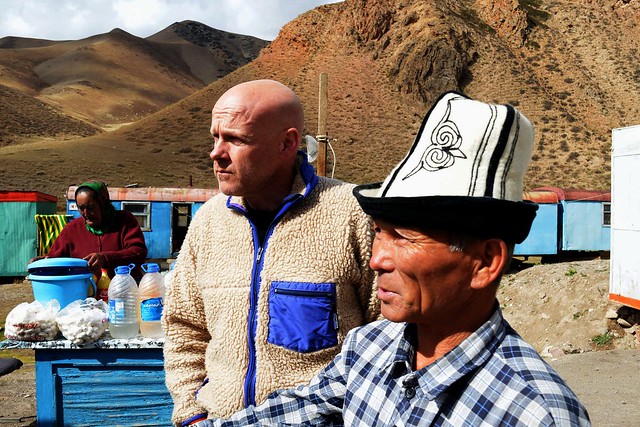
In a one-sided story condemning trophy hunting, it failed to point out the WWF-backed conservation benefits of trophy hunting. Instead, it called for a kneejerk ban.
Big game hunting has been at the forefront of wildlife conservation. Here’s our story about one of the most iconic spoecies that hunters have brought back from the brink of extinction: the markhor goat.
The modern problem for trophy hunting began with the Cecil The Lion story in 2015, when a US trophy hunter called Walter Palmer shot a lion in Zimbabwe that the animal rights lobby successfully presented as an animal called Cecil, claiming it was popular with tourists. Worldwide government actions following this incident led to some of the biggest and most tragic wildlife slaughters ever seen in Africa. As trophy bans fell into place, wildlife poaching boomed.
By the beginning of 2018, a kneejerk US trophy import ban on Tanzanian elephant and lion trophies was beginning to have real – and potentially devastating – consequences, including the loss of decades of successful nature conservation.
In March 2018, the following sad message came from Eric Pasanisi, one of the largest outfitters in Tanzania. Until now.
“I confirm that I surrendered all my hunting blocks of all my companies today.My family has been the longest operating company in Tanzania – for more than 40 years. We have been the biggest operator in Tanzania and all of Africa. We have held the largest part of the Selous, with prime blocks, the same since 1978 which I finished surrendering all today. We have gone from 126 safaris per year to a handful because of the closure of US elephant and lion trophy imports. We cannot book enough 21 day safaris to make a profit or stay in business without lion and elephant imports into the US. Our losses are escalating so I have to stop.
“When US elephant and lion hunting imports were threatened we stepped up our anti-poaching to US$2.4 million in three years. We by ourselves funded 100 Selous game scouts for many years. You saw our books and took copies of our ledger sheets for US authorities. You saw the newspaper clippings of the vehicles and plane our foundation delivered. You even attended the public ceremonies with the minister. Remember the work done! I know that Warden of the Selous wrote to the US how important our presence was to control poaching in the Selous. At the same time I have donated many full safaris to Shikar for auction to fund the US$500,000 for lion studies and aging, work that was ignored by USFWS, perhaps because of Craig Packer [US lion biologist and anti-hunting activist], I do not know!
“The efforts of Tanzania, of my companies and foundation have been completely ignored by USFWS, so we have already been operating at a loss for too long it is time to stop and I cannot guarantee that the biodiversity of the hunting areas will not be lost now!
“Our involvement in anti-poaching has become almost zero this year because our income losses. I think that the decisions by USFWS will eventually exterminate all Tanzania wildlife outside National Parks because of their determination to stop the importation of trophies into the US.Everything will end very quickly and wildlife will disappear in these areas that represent almost one-third of Tanzania territory. I have already returned 10 blocks the past years and with no hunters in the field it is going to be very difficult to save our last elephants. Our poor elephants, our poor animals, SHAME on….!!!!
“The real truth is that everyone does not care and nobody can realize the irreversible damage caused by such decisions. It is certainly the END OF THE GAME if your governments do not realize and help Tanzania. Anyway, It is already too late for me, and soon it will be too late for other outfitters.
“Kind regards
Eric Pasanisi”
By the end of 2018, the reality of the benefits of trophy hunting was beginning to hit home, even among the readers of the left-leaning Guardian newspaper.
After the Guardian orchestrated a campaign against African big game hunting by antis including Labour leader Jeremy Corbyn and actress Joanna Lumley, it has climbed down in the face of angry letters from the staff of dozens of African conservation bodies.
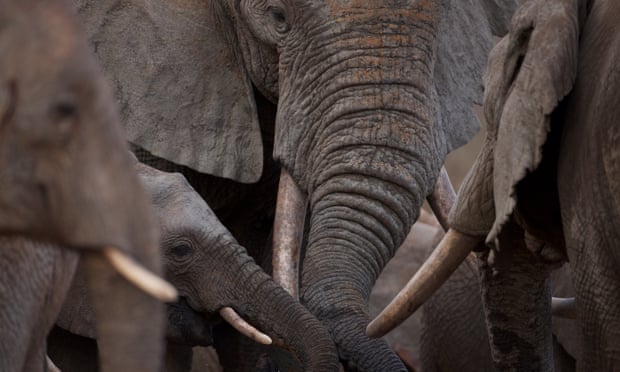
The Guardian printed responses to a call for a ban on the importing of hunting trophies to the UK, made in the newspaper by celebrity wildlife campaigners such as Virginia McKenna and Piers Morgan. Among campaigners who voiced support for big game hunting are Dr Tim Davenport, Country director, Tanzania, Wildlife Conservation Society, and 250 staff from different conservation bodies who are signatories to this letter:
“It is heartening that so many people have strong feelings about conservation, as evidenced by the letter expressing a desire for a global ban on trophy hunting. However, this well-meaning call risks unintended negative consequences for both wildlife and for impoverished rural people.
“For rhino, elephant, lion and all the species mentioned in the letter, the International Union for Conservation of Nature (IUCN) – the global authority on conservation – considers that trophy hunting is not a key threat to their survival. Indeed, well-managed trophy hunting has led to increases in populations of rhino, elephant, lion, markhor, argali, chamois and others. The main problems facing these species are habitat loss and fragmentation, conflict with local people, prey base depletion and illegal poaching.
“The letter suggests that nature tourism could replace trophy hunting. But tourism is a fickle industry (much more so than hunting) and only viable in some places. And even in those places it generally fails to generate sufficient funds to cover the cost of protecting land and wildlife. We need to keep more options open. Trophy hunting is a strategy that rural communities who live alongside wildlife (including many of us listed here) actively choose for wildlife management – alongside tourism, trade and other uses. Surely our voices, and the impacts upon us, should be taken into account in this debate? Meanwhile, celebrities and politicians could better use their influence to address issues which really affect conservation, such as tackling climate change, funding protected areas, and aligning conservation and development goals.”
Namibia’s top ecologist also hit back against a letter in the Guardian newspaper against trophy hunting. Dr Chris Brown, chief executive of the Namibian Chamber of Environment, has written an article saying the current campaign against trophy hunting is a western urban cultural imposition on the rights of rural African communities. He asks whether the Guardian is displaying ‘arrogant cultural superiority or ignorance’.
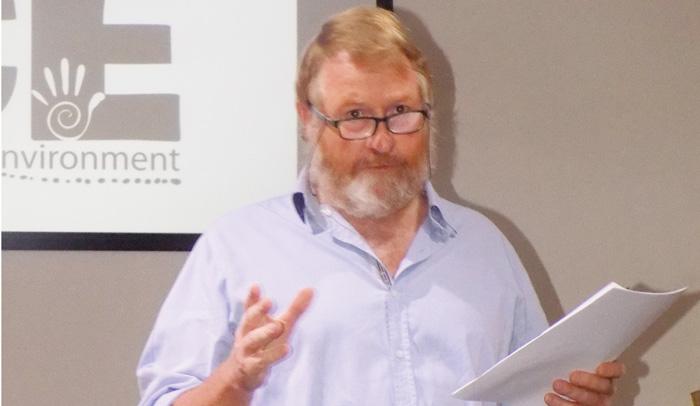
He writes: “The difference in views on trophy hunting between the western urban elite and that of the people of rural Africa is stark. In a recent letter to the Guardian, a group of public figures in the UK described trophy hunting as ‘cruel, immoral, archaic and unjustifiable’ and called for an end to global trophy hunting. In much of Africa, rural communities see all forms of sustainable hunting as legitimate use of their indigenous resources, in much the same way as western nations consider it their right to harvest fish, timber, deer, and use other natural resources for their livelihoods and economic growth.”
Brown goes on to ask: what is really behind the call for a ban on the import of wildlife trophies into the UK?
The Namibian Chamber of Environment (NCE) is an umbrella membership body for environmental NGOs in Namibia. The NCE currently has a membership of 64 environmental NGOs – well over 90% of all ENGOs in the country. Dr Brown is not a hunter. He has been a vegetarian since the age of 11 because of welfare issues around domestic animals, a former director of the Namibia Nature Foundation (for 12 years) and the first Director of the Directorate of Environmental Affairs in the Namibian Ministry of Environment & Tourism. He has a PhD in conservation biology and interests in the tourism industry in Namibia.
Since then, the Guardian has moderated its language on the issue. What it previously called ‘cruel, immoral, archaic and unjustifiable’, it now refers to as ‘the complex issue of big game trophy hunting’.
Others in the media have not been so sensible. Ever since the Cecil The Lion story, antis have felt empowered to make violent threats against hunters, including threats from TV celebrities. Here is TV presenter Eamonn Holmes describing big game hunters as murderers on the UK terrestrial network ITV:
Eamonn Holmes’ description of a hunt as ‘murder’ provoked a mass of death threats against hunters and shooters on social media. The ITV This Morning presenter made the comment while interviewing Fieldsports Channel’s Charlie Jacoby and a representative from the League Against Cruel Sports on the daytime show.
Holmes, co-presenter Ruth Langsford and LACS policy director Chris Luffingham agreed on TV that ‘trophy hunting’ should be banned. Charlie Jacoby made the point that trophy hunting is no more than animal management with the extra benefit of providing money for the conservation of species and habitats.
“By using the word ‘murder’, Eamonn Holmes legitimised the death threats we received after the ITV show went out,” said Charlie. “We get two dozen death threats a month from the small group of hardline antis who seem to enjoy our hunting shows on YouTube – but this is a new level of abuse. Happily, we are living proof that antis don’t carry out their threats.”
Here is a selection:
I’d love to shoot them fuckers close range, very close. #thismorning
— MissMoo (@Missmoo66) October 23, 2018
Humans have overpopulated, let’s cull a few, can we start with this bloke who pro hunting ?? #thismorning
— Bogs_Of_Justice (@BogsOfJustice) October 23, 2018
I’d love to put a bullet in that cunts head!!#ThisMorning
— Sonia Wilkinson (@jovijunkie74) October 23, 2018
Give a Deer a Rifle and let them shoot this man. #thismorning @thismorning pic.twitter.com/Z07MCXLl4r
— James Newman (@james_newman94) October 23, 2018
In the TV interview, Holmes led the attack on hunting, calling a video of an elephant shot in Namibia ‘murder’, while refusing to accept arguments that the death of the animal resulted in significant payments to locals via the community scheme NACSO.
It was always going to be a tough one for Charlie. When the elephant hunt story came out, Holmes Tweeted ‘Dear God … Heartbreaking.’
Dear God …….
Heartbreaking. t.co/eQLvhwZtJp— Eamonn Holmes (@EamonnHolmes) October 19, 2018
In 2019, Irish radio show hosts attacked a caller who revealed he enjoys hunting. The consumer watchdog show Liveline encouraged callers to complain about poor service.
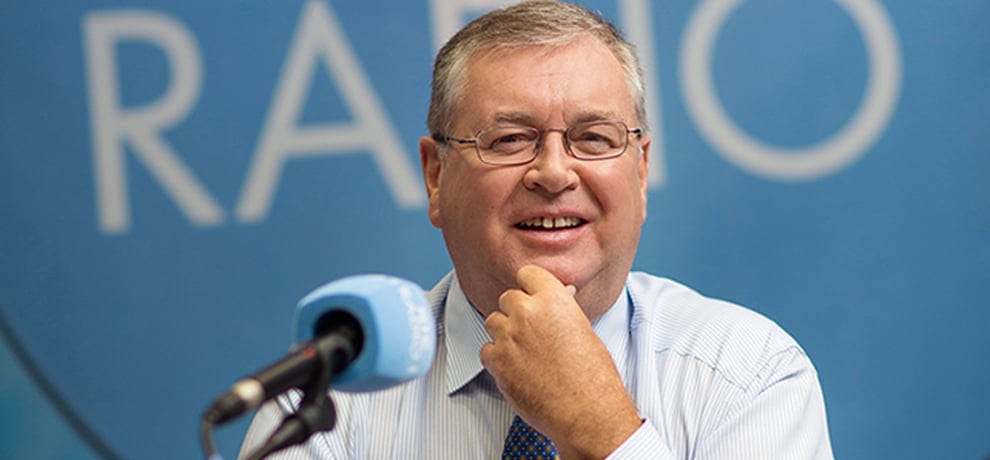
When a caller called ‘Frank’ said he had lost 100 bullets worth €700 on an Air France flight to Zimbabwe, instead of trying to help him out, the radio show hosts attacked him and demanded he defend trophy hunting. Frank gave a spirited defence of hunting, but the RTE One presenters were against him. Thanks to Finian Carton for sending in this story.
Antis have found the greatest traction in the media when they criticise women for hunting. When Larysa Switlyk shot a goat in Islay in 2018, she caused a storm in the UK media after she posed with the carcase on social media:
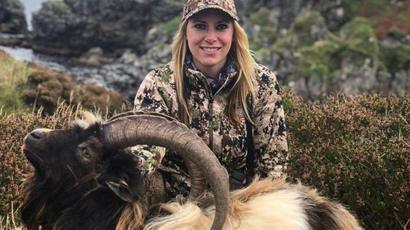
Frightened civil servants and corporations have responded with initiatives such as this one from Namibia in July 2018. It considered banning trophy photos on social media. Wildlife populations in Namibia are booming thanks to hunting. However, the country is scared of the negatve publicity that trophy photos generate in the wider media.

This letter is from the Namibia Environment and Tourism Department, and demands big game hunters do not post pictures of themselves with dead trophies on social media – because, it says, the ‘practice tarnishes the image of the industry’.
The Ministry is react ing to online attacks from anti hunting groups. It reaffirms that licensed hunting is a form of conservation which raises money for local communities. A Ministry spokesman says: “We don’t want to spoil the image of Namibia and we don’t want to spoil the industry itself, with people saying we are killing animals for fun.”
Namibia has reportedly rescinded this order after discovering that it won’t work.
Fieldsports Channel has covered trophy hunting for years, showing the conservation benefits, the excitement and the adventure. Here are some of our films:








